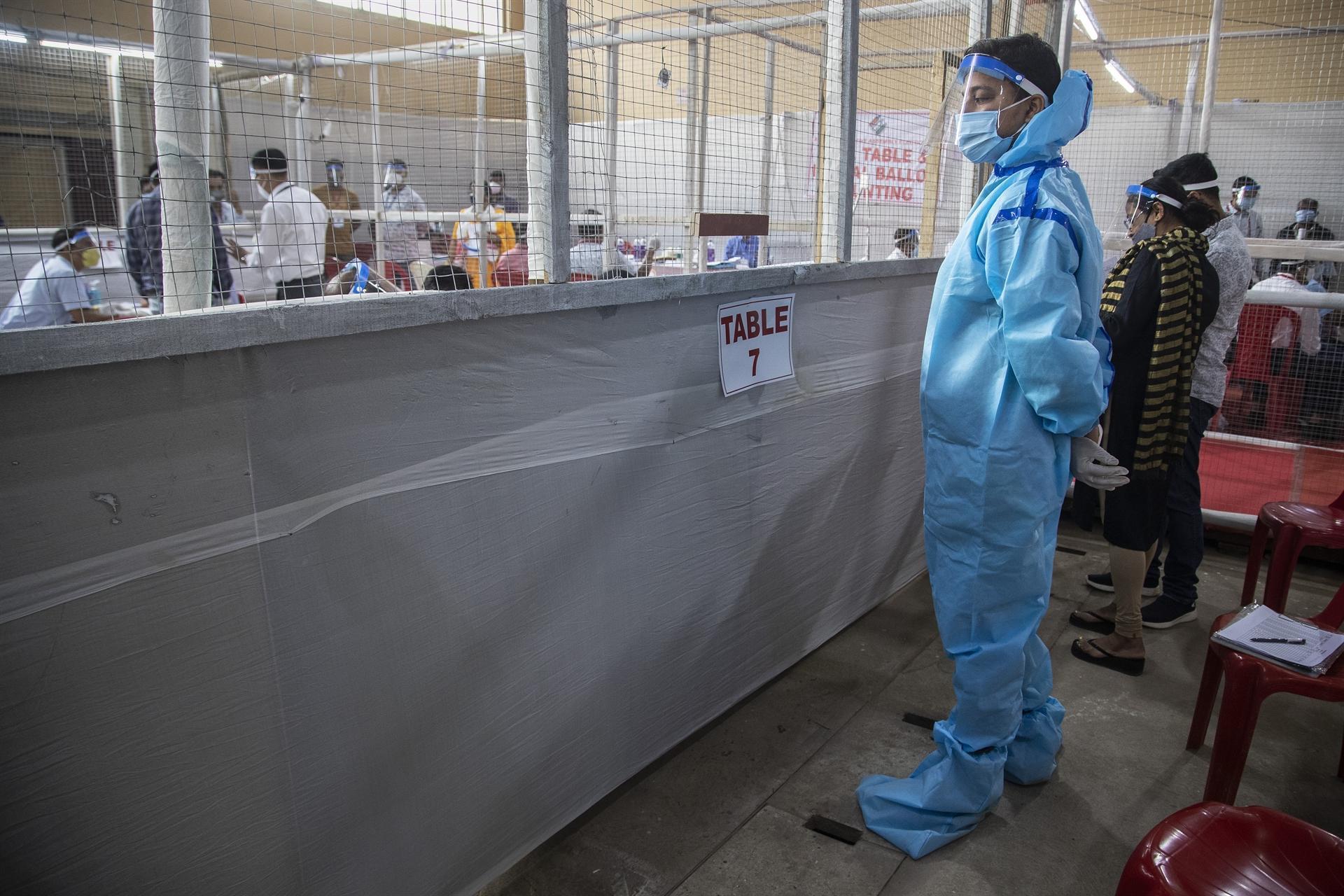
India struggled to contain one of the world’s worst coronavirus outbreaks with nearly 400,000 new infections reported on May 2, as more international aid arrived in the South Asian nation to help end the crisis.
Surges in Brazil and Canada also highlighted the persistent threat of the pandemic, with the COVID-19 death toll approaching 3.2 million even as many nations ramp up their vaccination drives.
India expanded its vaccination programme to all adults on May 1, but many of its states are struggling with shortages despite an export freeze for shots produced in the country.
Long queues were seen at vaccination centers in cities across India on the weekend, with people desperate to be inoculated against a disease that has overwhelmed the country’s healthcare system and even crematoriums and graveyards.
"We are here early in the morning to get vaccinated... I left my three-year-old at home to get vaccinated," said Megha Srivastava, 35, at a private vaccination center in the capital New Delhi.
"It is a necessity now. We are seeing so many people testing positive."
Social media platforms have been flooded with desperate pleas from people looking for oxygen cylinders, medicines and hospital beds as the COVID-19 wave causes widespread shortages.
India reported more than 392,000 new cases and nearly 3,700 COVID-19 deaths on May 2.
The dire situation prompted many nations including the United States, Russia and Britain to dispatch emergency supplies including oxygen generators, face masks, and vaccines.
Aid from France reached India on May 2, including eight oxygen generator plants and 28 ventilators, adding to the 120 ventilators from Germany that arrived on May 1.
New Delhi, one of the hardest-hit parts of the country, extended its lockdown by a week on May 1.
Anthony Fauci, the top US pandemic advisor, said in comments published on May 1 that India should go into lockdown to fight this wave.
Prime Minister Narendra Modi’s government has resisted imposing a national shutdown but many states have imposed heavy restrictions.
Known global infections are approaching 152 million, and fresh waves have also shaken many countries in the Americas.
Brazil, the worst-hit Latin American nation, has crossed 400,000 COVID-19 deaths - second only to the United States, with many of its hospitals pushed to the brink of collapse.
And in Canada, the epicenter is in the most populous province Ontario, where the surge has been so intense that the government sent in the military and the Red Cross to help care for critical patients.
Ontario’s healthcare system is nearing the breaking point, said intensive care nurse Farial Faquiry at Toronto’s Humber River Hospital.
"We’re stretched thin," Faquiry told AFP.
"We’re tired and exhausted. Just exhausted."
Many health professionals and caregivers are also frustrated with citizens who have not followed precautions.
"I think we all feel we have been let down a little bit by society," said physician Jamie Spiegelman.
Canada’s vaccine rollout has also stumbled because of supply issues, unlike its southern neighbor the United States which has given at least one dose to more than half its adult population.
But concerns are growing there too about the inoculation programme hitting a wall - the people most eager to get their shots have already done so.
Despite the COVID-19 threat in sharp focus because of the outbreaks in Brazil and India, populations in many parts of the world are growing weary of virus measures.
Anti-restriction protesters gathered in several European countries on May 1, including Finland, Sweden, Belgium and Germany.
In Belgium, currently in a second national lockdown, police fired water cannon and tear gas on May 1 as they cleared a crowd of several hundred such protesters at a park in Brussels. There were 15 arrests and two police officers were hurt.
A protest in Helsinki drew around 300 participants and resulted in about 50 arrests, Finnish police said.
Stockholm saw between 500 and 600 people march against the curbs.
And despite the worrying spike in Canada, tens of thousands of people marched in Montreal against virus restrictions.
Some demonstrators were arrested at the start of the march, according to an AFP journalist, with signs in the crowd expressing opposition to face masks and curfews.